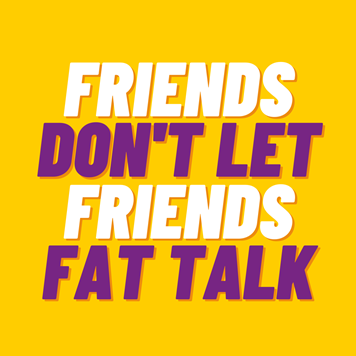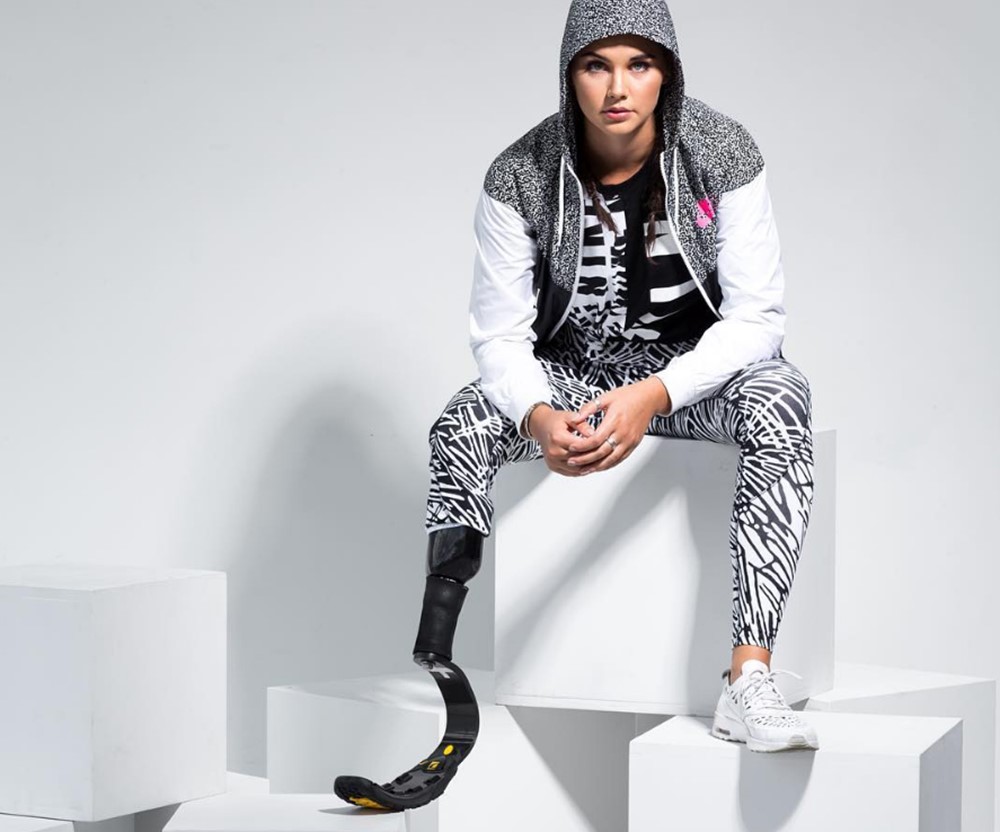
Let's Banish Fat Talk
Why Fat Talk sucks and what to do instead
Categories
- Thought Leadership
Fat-talk is when girls and young women speak about their bodies with each other in a negative way. It is a mode of language that encourages conversations and negative comments about one's body. It reinforces the belief that slimmer bodies are more attractive than larger ones and often includes comments about wanting to change their body through diet or exercise.
When you’re with your girlfriends, have you ever noticed how often the conversation turns to the topic of body shape or weight? You might mention the reason you’re passing on dessert is that you have a few kilos to lose. Perhaps you get into a discussion about someone you know who has lost loads of weight doing keto or fasting or some other plan. Participating in fat-talk has social currency in that it is a common way for young women to bond and connect. But, there are sinister consequences to it:
- Fat talk has been found to increase body dissatisfaction and drive for thinness.
- Fat-talk is seen to be more typical than positive body talk and the more fat-talk that someone hears, the more likely they are to participate in it.
- When an individual hears and engages in fat-talk they experience higher levels of body image dissatisfaction, guilt and shame.
- When a woman is of a size generally considered to fit within the norms of ‘healthy’ but complains that she is fat to someone of a similar size, it sends the message that the second person should also be unhappy with her body.
- Fat talk from friends and family causes internalisation of the thin ideal and leads young women to consider that their body image dissatisfaction is appropriate.
- Hearing fat talk and, even more strongly, participating in fat-talk predicts increased body dissatisfaction.
BANISH BODY-TALK
Talking negatively about our bodies does us no good at all. If there was one thing we could all do as individuals to combat negative body image, it would be to stop participating in body-talk at all. Like our friend Genevieve Mora says: “Unless it’s something that can be fixed in three seconds (spinach in their teeth, toilet paper on their shoe), don’t comment on someone’s body at all”
Here’s a handy Body Talk Action checklist we adapted from Dove’s Self Esteem Project:
Take the one-week challenge.
Challenge yourself to a week of no fat talk. It might be hard at first, but if you tell friends and family about it, they can support you and even try it for themselves.
Tell your friends you’re bored with body talk
If the next time you meet up with a friend, if they start any fat talk reassure them but also alert them to the negative impact of their words – for example: "I adore you and it hurts me to hear you talk about yourself that way”.

Focus on the fun talk
Avoid fat talk when discussing diet and exercise, focusing instead on the emotional and health benefits. So, if your friend has started a new fitness regime, perhaps ask them whether they’re feeling stronger or sleeping better.
Replace negative with positive.
If you start to fall into the ‘body talk trap’, try turning a negative into a positive. Think of a positive replacement statement for everything negative you might say about your or others' appearance
Love your body*
The first step to building self-esteem and positive body confidence is to love and appreciate your body. Use it to feel energised – go for a walk and enjoy the fresh air, do some gardening or go for a bike ride with your mates. Find the best way that works for you to stay active. A healthy amount of exercise every week can make us feel better about our bodies, encourage good mood and decrease stress. But don’t overdo it. The best workout programmes are the ones you actually enjoy.
*We want to emphasise the complexities and oversimplification of “loving your body”. In the real world, this is really hard to do! Our feelings about our bodies are never constant and that’s ok. While you may not be able to love your body every day, you can work at accepting it, flaws and all.
Tackle your harsh words about others
Stop making criticisms about other people's weight or looks. Not only will other people subconsciously pick up this negative behaviour, but they’ll also interpret it to mean that bigger can’t be beautiful.
Read more like this




